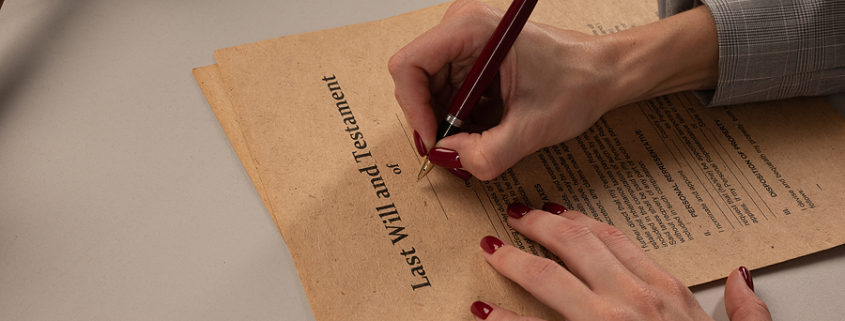What’s the Difference Between a Will and Estate Planning?
We all know it’s important to plan for the future. Maybe you have made some wise investments and want to make sure your assets get passed on to your children. Or, if you have a special needs child, you might be wondering how to ensure they’re well taken care of if anything happens to you. Although it might be unpleasant to think about a future when you won’t be around to care for your family, it is important to make decisions now to protect your family later.
If you’ve started thinking about making a will, you might have a few questions. Is a will all you need to cover everything? Is a will the same thing as estate planning? What happens if you don’t have a will?
What is included in a will?
A will is a written document that provides details and instructions for:
- How you want your assets to be distributed after your death, including gifts to family members, friends, or charities.
- Who should be the guardian of your minor children.
- Management of any assets left to minor children.
- Designation of an executor, or person responsible for administering your estate, including payment of debts, taxes, or expenses after your death.
What is estate planning?
Although they are related, a will is not the same thing as an estate plan. Estate planning is the process of organizing your estate to help you make decisions about your finances, taxes, medical issues, debts, and business, etc. A will is part of this process, but an estate plan is much broader, allowing you to:
- Maximize your enjoyment of your estate during your life;
- Help protect your assets in cases of divorce or bankruptcy;
- Minimize the impact of taxes;
- Ensure that you can provide continuing care for your loved ones after you are gone;
- Provide instructions related to healthcare decisions such as the use of life support or organ donation if you become incapacitated;
- Be certain that your decisions and final wishes regarding distribution of your assets are carried out after your death.
Because your estate encompasses all of your property and assets, including financial accounts (bank, life insurance, retirement); investments (stock, bonds); real property (house, real estate); and personal property (cars, jewelry, furniture), estate planning is essential for everyone, not just individuals with large estates. Families, specifically, benefit from estate plans because they can help plan for funeral expenses and determine custody and guardianship issues for minor dependents, including children with special needs.
What happens if I don’t have a will or estate plan?
If you do not have a will or estate plan upon your death, a judge will appoint another person to take control of your assets in accordance with laws in California. Usually, your estate will be distributed to a spouse or domestic partner first, followed by immediate family. Any close friends or charitable organizations would be ineligible to receive benefits.
Start planning today
The estate planning attorneys at Lonich Patton Ehrlich Policastri offer a full range of legal services related to estate planning and are experts in preparing wills, revocable living trusts, special needs trusts, and other documents used in charitable giving and transference of wealth. Call us today at 408-553-0801 or fill out our online form here for a free consultation. We can help you make the important decisions that will help you and your family today and in the future.
Disclaimer: this article does not constitute a guarantee, warranty, or prediction regarding the outcome of your legal matter.




